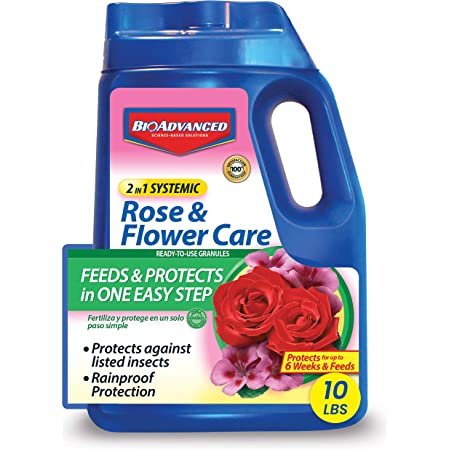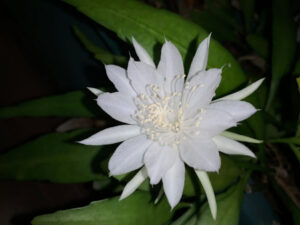Roses and flowers have epitomized beauty and elegance throughout history, captivating hearts and gardens alike. However, maintaining their vibrancy requires diligence and expertise, particularly in a world rife with environmental challenges. Bayer Rose & Flower Care offers a comprehensive 2-in-1 systemic solution designed to nourish and protect these beloved plants. This article delves into the essential principles of cultivating robust roses and stunning flowers, transforming your gardening experience.
Understanding the Intricacies of Plant Nutrition
At the core of flourishing roses lies a profound understanding of their nutritional requirements. Like humans, plants require a balanced diet to thrive. The Bayer Rose & Flower Care formula functions as a systemic nutrient provider, penetrating the plant’s vascular system to ensure that every leaf and blossom receives the necessary sustenance. This is not merely about feeding the surface; it’s a sophisticated nutrient delivery mechanism that addresses the root structure while extending nourishment throughout the plant.
The quintessential elements include nitrogen, phosphorus, and potassium (NPK), balanced meticulously to promote growth. Nitrogen encourages lush foliage, phosphorus fortifies root development, and potassium aids in flower production. Nevertheless, the intricacies extend beyond these fundamental macronutrients. Essential micronutrients, such as magnesium, sulfur, and iron, contribute to the chlorophyll production vital for photosynthesis, ensuring your roses maintain their striking hue and vitality. Understanding these layers of nutrition will help gardeners recognize potential deficiencies and remedy them proactively.
The Art of Integrated Pest Management
Creating a haven for roses and flowering plants often invites a host of pests and diseases, which can be detrimental to the health of your garden. Bayer Rose & Flower Care’s dual-action approach not only nourishes but also protects against infestations. By utilizing a systemic insecticide, it provides a robust defense against pests such as aphids, spider mites, and various beetles.
The focus on prevention is paramount. Regular monitoring of your plants is crucial, as early detection of problems can lead to swift remediation. An integrated pest management (IPM) strategy blends cultural, mechanical, biological, and chemical measures to mitigate pest-related challenges. Consider introducing beneficial insects like ladybugs and lacewings to your garden—natural predators that help control pest populations without adverse effects on the ecosystem.
Moreover, maintaining optimal conditions in your garden can prevent the onset of disease. Adequate air circulation, proper drainage, and the strategic placement of plants can thwart fungal infections such as black spot and powdery mildew. Knowledge of disease cycles and environmental conditions enables gardeners to be proactive rather than reactive, illustrating the importance of an informed approach to rose cultivation.
Hydration: The Lifeblood of Blossoms
Watering may seem like a mundane task, yet it is one of the pivotal elements in achieving a picturesque garden. Understanding the specific hydration needs of roses is essential for fostering resilience and beauty. Rather than adhering to a rigid watering schedule, it is wise to consider soil moisture levels and environmental factors. Overwatering can lead to root rot, while underwatering can stunt growth or cause wilting.
When watering, aim for deep and infrequent applications, encouraging deeper rooting. Soil should be able to retain moisture while also allowing excess drainage. Mulching not only helps retain soil moisture but also keeps the root zone cooler during hot months, reducing stress on the plants. Organic mulch materials, like wood chips or straw, additionally enrich the soil as they decompose, creating a nurturing environment for your roses and flowers. The balance between moisture and aeration forms a symbiotic relationship that is critical in fostering health and vitality.
The Importance of Seasonal Care
Every season presents its unique challenges and rewards for gardeners. Familiarity with seasonal care routines can drastically influence the overall health of roses and flowering plants. In spring, focus on pruning to stimulate new growth, while summer demands vigilance in watering and pest management. During the fall, a final fertilization provides essential nutrients to prepare for winter, and mulching protects roots from freezing temperatures.
Winter presents its own set of challenges, especially in colder climates. Proper winterization of roses—such as wrapping bases with burlap and applying protective mulch—can guard plants against harsh winds and frost, ensuring that they emerge robust come spring.
Wrapping Up the Journey to Flourishing Roses and Flowers
By incorporating Bayer Rose & Flower Care into your gardening regimen, you embrace the opportunity to transform your horticultural endeavours. This multifaceted approach to nurturing and protecting your plants not only ensures their health but also enhances the aesthetic allure of your garden. Through understanding the nuances of plant care, from nutrition and pest management to proper hydration and seasonal routines, you cultivate not just flowers but a deeper bond with nature. As you embark on this gardening odyssey, allow these principles to guide your way. Embrace the thrill of growth and the breathtaking beauty awaiting in your flourishing garden.




Leave a Comment